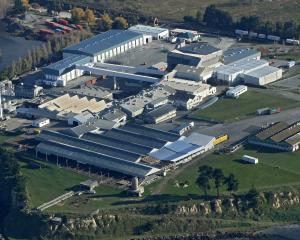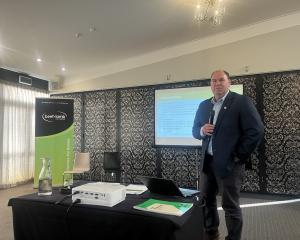
Frederic Leroy, Professor of Food Science and Biotechnology at Vrije Universiteit Brussel, Brussels, said meat had effectively become a scapegoat for commercial and environmental advocates, much of which was based on bad science.
Speaking at last week's red meat sector conference hosted by the Meat Industry Association and Beef + Lamb NZ, Prof Leroy said the industry as a whole had a responsibility to ''change the narrative''.
''This is a relatively new phenomenon and it's not likely to go away soon. The anti-meat lobby has gained traction in Europe and elsewhere over the past few years, leading to calls for banning or instituting a sin tax on meat. High-level UN policy makers have even suggested that we could eventually see meat-eaters being banned from restaurants.''
He said media played a part in promoting negative stereotypes, promoting research suggesting that, in Western countries, beef consumption needed to fall dramatically and be replaced by plants such as beans and pulses.
This has been promoted by organisations such as the Open Philanthropy Project (OPP) which in 2017 paid the United Kingdom-based Guardian newspaper more than $NZ1million to publish a series titled ''Animals farmed'', which painted animal agriculture as unhealthy and dangerous to the environment. OPP is funded by Dustin Moskowitz, one of the founders of Facebook and an advocate of farm-animal welfare. OPP is also a major investor in Impossible Foods, the maker of the Impossible Burger.
Prof Leroy said a major issue was that advocates had linked a reduction in greenhouse gas (GHG) emissions directly to meat intake.
''The impression is that one of the single biggest things the average person can do to combat climate change is to become vegan. Unfortunately, the entire chain of proof is not based on scientific method and has been corrupted by vested interests and commercial priorities.''
Prof Leroy said in reality variance to diet did not have much of an impact on carbon emissions.
A study by the Global Carbon Project in 2017 had shown that of the four top emitters, on a per-capita basis the United States emitted 16.2 tonnes/person of CO2, with China and Europe at 7.0 t CO2 and India at 1.8 t CO2, averaging out to about 12t CO2 per year.
He said a number of reviews had shown the impact of going vegan would remove about 0.8 t CO2, vegetarians could cut out about 0.5 t CO2 and flexitarians around 0.3 t CO2. The inference is that moving to exclusive plant-based nutrition would represent a decrease of between 1%-6% in GHG emissions compared to as much as 44% by living car-free.
''The elephant in the room is fossil fuels. Global tourism accounts for 8% of overall carbon emissions, mobile phones around 14% and cement production around 7%. They aren't receiving much attention.
''We obviously need to face up to the challenge of feeding the world with nutrient-dense food, but there remained an important place for beef and other ruminant meats.
''Global climate change does require our attention and we need to focus on making our environments and food systems more sustainable. Meat simply isn't the root cause.
''New Zealand producers will need to get their act together based on science and telling the story of biodiversity.''















